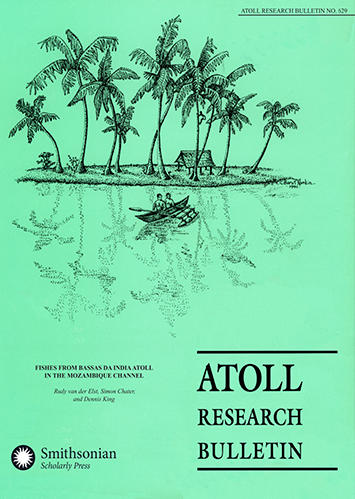Fishes from Bassas Da India Atoll in the Mozambique Channel
Atoll Research Bulletin
09.04.2022
Bassas da India is a remote, uninhabited coral atoll in the West Indian Ocean. Its inaccessibility had historically precluded study of its ichthyofauna until a small group of scientists from the Oceanographic Research Institute in South Africa undertook a two-week biodiversity survey in 1991. Since then, the discourse on climate change has taken on a higher relevance, calling for protection and study of biodiversity hotspots such as Bassas da India. The survey recorded 309 fish species, including a number of vulnerable teleosts and elasmobranchs. As the only published information on the biodiversity of this remote small island, it is intended that this dataset will contribute to increased relevance as an ecological baseline for detecting impacts relating to climate change in the South West Indian Ocean. Each species is listed in terms of its individual abundance, IUCN status as well as its museum and photographic record. Comparisons are made with survey results of other small coral islands in the region, notably Europa Island, revealing several distinct differences in fish diversity. There is evidence that giant groupers will replace sharks as apex predators when there is no local exploitation. A total of 86 species were photographed to confirm identity, and a further 84 species were provided to the South African Institute for Aquatic Biodiversity museum in Grahamstown and also to several international species experts.
